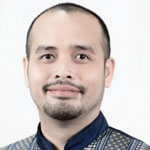The Role of Culture in Theology: An Essential Ingredient or Mere Garnish?

Adobo, an all-time favorite Filipino dish, is probably one of the most delicious foods ever invented on the planet. Cooking adobo is simply simmering chicken, pork, or even seafood in vinegar, soy sauce, and garlic. Yet there are a variety of ways to make it more flavorful and adventurous such as adding coconut milk or garnishing it with spring onions. The process of cooking adobo can serve as a helpful analogy as we reflect on the relationship between culture and theology. Is culture like an ingredient essential to the adobo recipe, or more like a garnish, adding flavor and beauty but not fundamentally altering the substance? This gets at a perennial question for Christians: where should we place culture in the process of doing theology? Should it contribute to the initial formation of theology’s content, or should we reserve it solely for the final stages of application? Just as good adobo requires just the right balance and use of ingredients, so also theology requires the right kind of engagement with culture.
The Filipino theologian Timoteo D. Gener serves as an able guide in addressing this theological concern. In his essay, “Divine Revelation and the Practice of Asian Theology,” Gener casts a vision for a theology that highly values culture yet is deeply grounded in Scripture.
Bible at the Center, Culture as a Source
According to Gener, the goal of his essay is to “highlight the centrality of biblical revelation in Christian faith and how this teaching relates to the practices of Asian theology, mission, and discipleship.”1 As an evangelical theologian, Gener prioritizes Scripture as the ultimate source for theological insight. He affirms that Scripture is a by-product of divine revelation. Yet for Gener, having a high view of Scripture does not necessarily result in having a low view of culture. On the contrary, he considers culture to be a valuable resource for developing localized and relevant theological reflection in Asia.
In the early part of his essay, Gener presents a brief overview of how divine revelation has been understood throughout church history. He notes that the Holy Spirit speaks in Scripture, proclaiming the good news about Jesus Christ. Yet in evangelical theology, the proclamation is not just parroting the content of the Scripture. From the beginning, there has been a dynamic process of making the gospel relevant to new cultural contexts. As Gener puts it, “Asian evangelical theology is both the result of a considered faith and a constructive process normed by God’s revelation in Christ as witnessed by Holy Scripture” (p. 25). To put it simply, knowing God more as ultimately revealed in Christ can only be truly experienced through Scripture.
Theology as a Product and Process
Furthermore, Gener notes that while the Bible remains central, Asian evangelical thinkers should broaden their understanding of revelation beyond Scripture. He proposes that the diverse cultures, religions, and social realities in Asia must inform the formation of our theology. For Gener, theology must be seen “as both a product (results of considered faith seeking understanding expressed in teaching) and a process of correlating the biblical message and context, to render the gospel and Christian faith in Asia in meaningful ways and with cultural theological impact” (p. 16). In other words, doing Asian evangelical theology is not just getting a doctrinal by-product from Scripture and then applying it to a specific context. Rather, it is the dynamic and productive interaction between Scripture and culture in our theological formation.
Avoiding Unhealthy Syncretism
If it is the case that culture must be given serious attention in Asian theology, then what about the danger of the unbiblical mixing of gospel truth with indigenous culture—often referred to as syncretism? This question echoes a major evangelical concern regarding contextual theology. According to Gener, syncretism happens when the church “allows the content of the interpretation to be affected by any of the values or premises of his culture that are incongruent with the gospel” (p. 28). In other words, not all aspects of fallen human culture can be redeemed. As a church, we must carefully assess cultural values in light of the clear teaching of Scripture before accommodating them in our church practice.
To avoid the pitfall of syncretism, Gener draws heavily on Simon Chan’s emphasis on the shared experiences of the church as a faith community. Gener notes, “The experiential dimension of doing Asian Christian theology lies in giving prominence to the lived experience of the church as a theological source” (p. 30). When the church as one body walks by the Spirit, the reality of the risen Lord is displayed in their diverse cultural expressions. As the Spirit-produced divine revelation, Scripture serves as the light unto our path. The Spirit empowers and guides the church into all the truth (Jn 16:13), including the truth found in our indigenous cultures.
Contextual Formation of Theology
The major takeaway from Gener’s proposal is that as evangelicals who strongly uphold the authority of Scripture, we must learn to incorporate culture into our theological method biblically and thoughtfully. Given that Scripture bears witness to God’s presence in creation, experience, and culture, the Bible itself gives us the “warrant to use cultural experiences and concepts as theological sources, albeit secondary (not co-equal) to God’s Word” (p. 21). To cite a few examples: Psalm 19:1-6 records that God reveals himself through the creation; Acts 17 informs us how Paul utilized the culture and religion of his audience to point them to God; Matthew 6:25-34 narrates how Jesus Christ used creational realities to point them to kingdom realities (p. 22).
More than just an academic exercise, Gener’s essay extends an invitation to pursue contextual systematic theology within the soil of Asian church experiences. By incorporating their lived communal realities, the Asian church can enrich global theological discourse with invaluable and unique perspectives. Armed with a deeper yet realistic appreciation of culture, we hope to transcend the question of whether culture should be part of the essential ingredients or just a mere garnish in our “theological dish.” Given that culture permeates our thinking and living, it is indeed an integral part of our “theological recipe.” Drawing on the importance of local contexts, Gener argues that culture, particularly Asian culture, deserves more serious consideration in our future theological endeavors.
If you want to dive deeper into Gener’s theological proposal, consider getting a copy of Asian Christian Theology: Evangelical Perspectives. For a more interactive overview, you can also access an interview conducted by ATA Digital, offering insights directly from the author himself. And while you watch, you may want to enjoy a steaming serving of adobo prepared just right.
- 1 Timoteo D. Gener, “Divine Revelation and the Practice of Asian Theology,” in Asian Christian Theology: Evangelical Perspectives, ed. Timoteo D. Gener and Stephen T. Pardue (Carlisle: Langham Global Library, 2019), 15.

